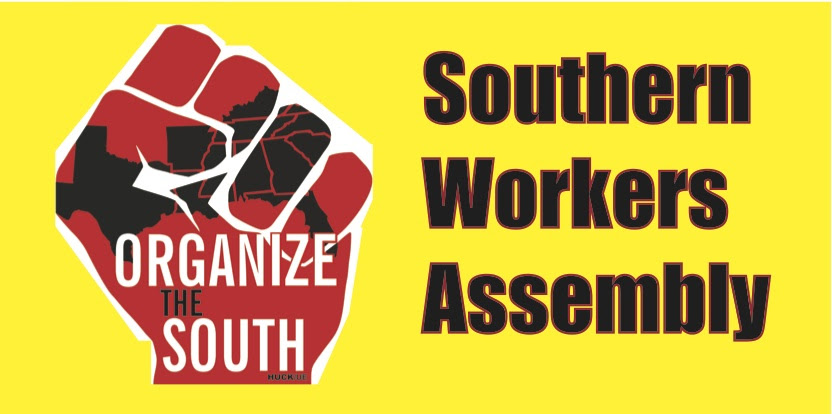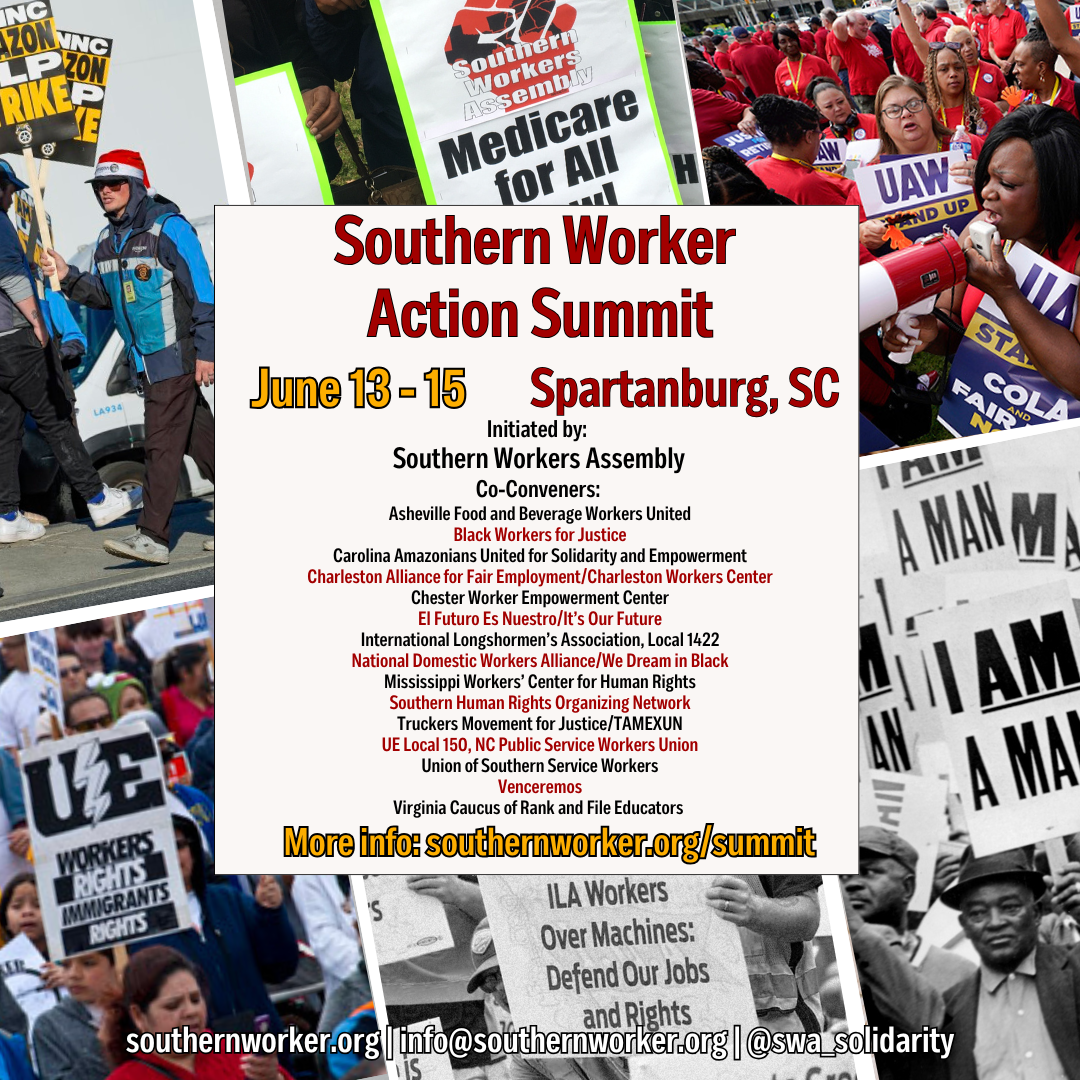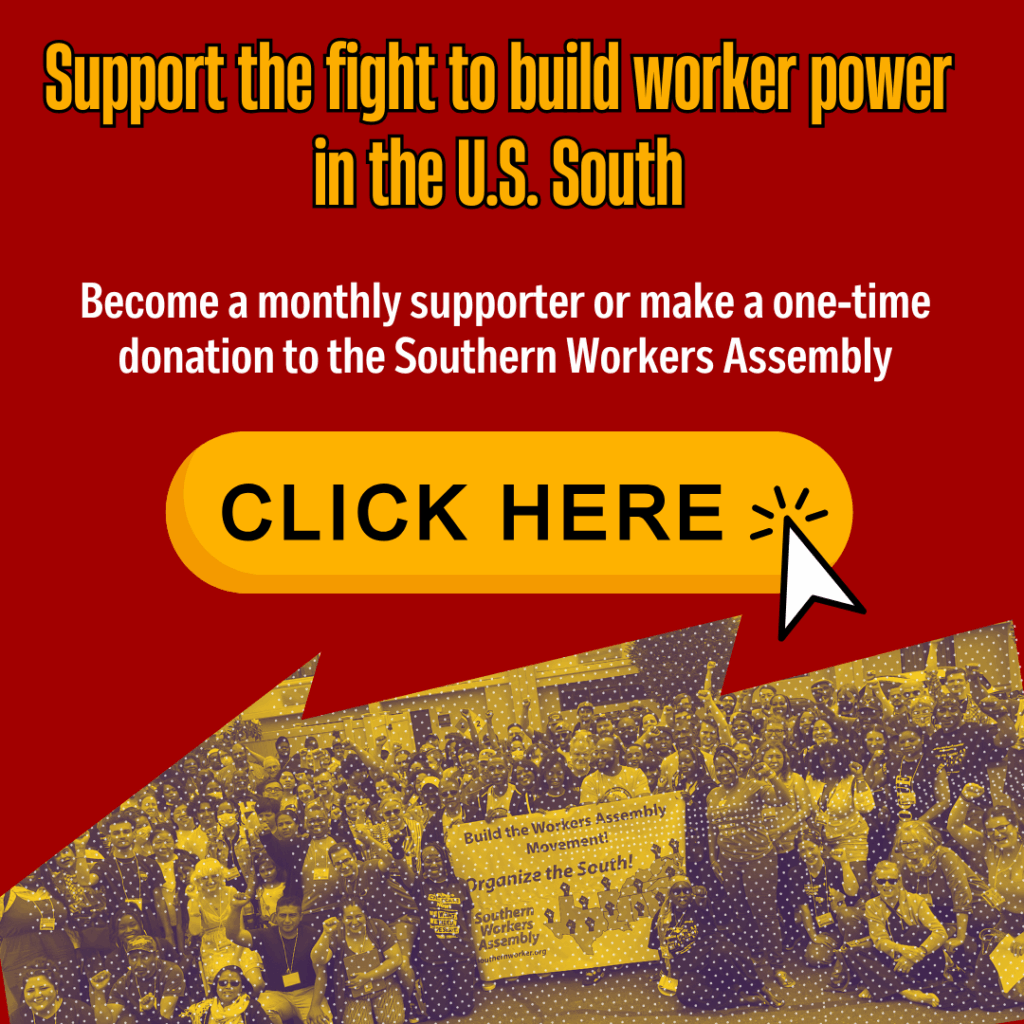The Southern Workers Assembly joins the Railroad Workers United and a growing number of unions and progressive organizations calling for public ownership of the rail infrastructure in North America. This is a critical initiative that would greatly benefit rail workers, the mostly Black, brown, migrant communities that bear the brunt of toxic chemicals from rail yards, and workers and oppressed people as a whole.
In 2022, railroad workers waged a courageous and inspiring struggle fighting for paid sick days, better working conditions, and against company greed. Biden and Congress, acting on behalf of the railroad owners and Wall Street, imposed a contract on rail workers that did not include their key demands for at least seven paid sick days and improved safety, but the workers have continued to push the struggle forward.
The two Class 1 rail companies with the largest operations in the South – Norfolk Southern and CSX Transportation – earned $3 billion and $4.17 billion, respectively last year. Norfolk Southern has paid out nearly $18 billion through stock buybacks and dividends to its shareholders, an amount that is double what it invested in its railways and operations, including safety measures. Norfolk Southern currently has $7.5 billion set aside for stock repurchase this year – which is over 1000 times what it has pledged to clean up the disaster it caused in East Palestine, Ohio.
In Norfolk, Virginia, there has been a long and ongoing struggle by the Black community in Lambert’s Point, which is located next to a Norfolk Southern rail yard and is regularly exposed to toxic coal dust from trains coming in and out of the terminal. Norfolk Southern continues to resist the simple solution of covering its coal cars.
Rail transport is getting more dangerous as the five companies that have monopolized Class 1 railroads have done everything they can to drive down working conditions for rail workers, to introduce various cost-cutting measures like so-called Precision Scheduling Railroading, to drastically reduce the workforce size, to make trains longer and heavier, and to fight any federal regulations that would make the railroads safer.
Why? Because the private rail companies are concerned with one thing, and one thing only – maximizing profit, no matter the expense to the lives of workers, our communities, and the environment.
Roads, bridges, canals, and other critical infrastructure in this country are already publicly owned and operated. Though much of this infrastructure is in dire need of greater investment and a green jobs program to repair and expand it, bringing the railroads under public ownership offers an opportunity for expanded use of the rails – which are generally more fuel-efficient than other modes of transit – for both the movement of goods and people. It also offers a greater avenue for struggle to ensure that the rails serve the interests of people when private ownership is eliminated.
Public ownership of the railroads would make rail transport safer for workers and the communities through which trains pass, often carrying hazardous materials. The technology and equipment to dramatically reduce derailments and make the railroads safer for rail workers and communities exists, but the rail bosses have no desire to implement these measures given their primary concern is enriching their Wall Street investors.
The demand for public ownership of railroads while also supporting the public interest in reliable and safe transportation is a step forward into shifting the power into the workers and communities hands, and away from the corporations. We urge workers, unions, environmental defenders, and progressive organizations to join this critical fight.


